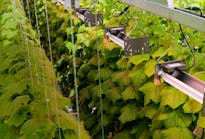Delays in ecodesign threaten EU climate targets and cost citizens billions – New analysis
Environmental organisations call on the European Commission to allocate the appropriate resources to ecodesign and energy labelling policies. Delays in ecodesign and energy labelling policies are estimated to cost consumers 40 billion euro by 2030.
The European Commission is dragging its feet in the development of ecodesign and energy labelling rules for products, mainly due to a lack of resources as these policies are not given the prominence and resources they deserve.
Ecodesign and energy labelling policies alone are expected to deliver about one-third of the savings needed to achieve the EU’s 2030 55% emission reduction target [1].
However, only 25% of updates foreseen for the 2016-2019 period have been implemented to date. In parallel, the Commission is still developing its Working Plan for 2020-2024, which is expected to be adopted with at least a 2-year delay.
Delays in developing ecodesign and energy labelling policies are estimated to cause 10 million tonnes (CO2eq) of additional emissions every year by 2030, according to new analysis by ECOS and the European Environmental Bureau (EEB) for the Coolproducts campaign. This is equivalent to 5 million cars added to our roads.
Without delays, consumers could save a total of 40 billion euros on their energy bills between 2020 and 2030. As it is, however, an average European household will now spend an extra 110€ on energy by 2030 as a direct result of poor policymaking.
Access the full Coolproducts report: https://www.coolproducts.eu/wp-content/uploads/2021/09/EEB_ECOS-Delays-in-ecodesign-report.pdf
The current situation raises concerns over the Commission’s allocation of resources to essential climate and product policies.
Resource shortages clash with the high relevance that ecodesign and energy labelling policies are set to represent in the much-anticipated Sustainable Products Initiative, a flagship file currently under development by the Commission [2].
To make up for the time already lost and harvest the potential additional savings, environmental organisations call on the Commission to allocate adequate staff numbers and political urgency to crucial ecodesign and energy labelling policies, switching towards a much more ambitious implementation of the existing regulations.
Mélissa Zill, Programme Manager in charge of heating at ECOS, said:
"Ecodesign and energy labelling are the biggest EU success stories to date. However, the Commission has been actively defunding these policies for years. Ecodesign policies directly translate into lower emissions and energy bills as well as more circularity. They must be given the importance they deserve. We cannot afford any further delays – not for a tool which is essential to achieve climate neutrality".
Jean-Pierre Schweitzer, Senior Policy Officer for Circular Economy & Product Policy at EEB, said:
"Ecodesign has been proven to deliver on climate and circular economy objectives, however this essential framework is bizarrely being neglected. The result is more emissions and higher energy bills for citizens. This casts doubts on the Commission’s commitment to this policy area, including the forthcoming Sustainable Products Initiative".
Ecodesign savings, in numbers:
The Ecodesign and Energy Labelling regulations adopted until 2019 are expected to reduce the energy and fuel consumption of many products and contribute to decreasing the related greenhouse gas emissions by about 518 Mt/year by 2030. That is more than one-third of the effort the EU needs to meet its 2030 emission reduction target.
Additional regulations and reviews already underway or expected in the next Ecodesign Working Plan could add another 58 Mt/year of emission cuts by 2030 (which is almost 4% of the total efforts needed to achieve the EU’s 2030 reduction goal). A further 30 Mt of indirect emission savings could be achieved through resource efficiency provisions (for example, by increasing the durability of products). For that, ecodesign and energy labelling updates must be ambitious and swiftly implemented.
Ecodesign and Energy labelling policies spur the development of energy-efficient home appliances, industrial products and electronic devices through limiting maximum electricity consumption and grading the energy performance of more than different 30 product groups [3].
Coolproducts is a coalition of NGOs led by the European Environmental Bureau (EEB) and the European Environmental Citizens Organisation for Standardisation (ECOS). We campaign to ensure a better product policy for EU citizens and the environment.
The EEB is Europe’s largest network of environmental organisations with over 140 members in 30 countries. ECOS is the only European NGO focusing on environmental standards.
EC register for interest representatives: Identification number 06798511314-27
International non-profit association - Association internationale sans but lucratif (AISBL)
Notes
[1] Delays in ecodesign implementation threaten 55% climate target and cost citizens billions – Coolproducts report (https://www.coolproducts.eu/wp-content/uploads/2021/09/EEB_ECOS-Delays-in-ecodesign-report.pdf)
[2] European Commission, Sustainable products initiative (https://ec.europa.eu/info/law/better-regulation/have-your-say/initiatives/12567-Sustainable-products-initiative_en)
[3] Product groups in ecodesign and energy labelling (https://ec.europa.eu/info/energy-climate-change-environment/standards-tools-and-labels/products-labelling-rules-and-requirements/energy-label-and-ecodesign/energy-efficient-products_en)
[4] Ecodesign and energy labelling statistics (https://ec.europa.eu/info/energy-climate-change-environment/standards-tools-and-labels/products-labelling-rules-and-requirements/energy-label-and-ecodesign/about_en)
Contact:
Alberto Vela - for the European Environmental Bureau (EEB)





